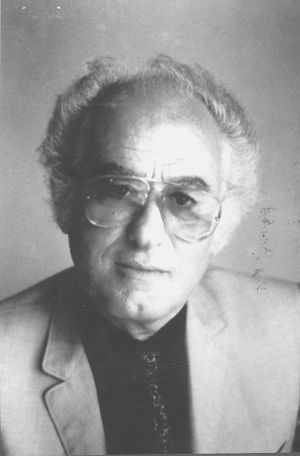Francis Ebejer
Francis Ebejer (28 August 1925 – 10 June 1993) was a Maltese playwright and novelist born in Ħad-Dingli.
Education and Teaching Career
Francis attended his village’s Primary School and the Lyceum. He started studying medicine at the University of Malta between 1942 and 1943. But abandoned his studies at the age of 17, during the 2nd World War, to act as interpreter for the British 8th Army in Tripolitania. Like his father, Francis chose a teaching career and thus, between 1948 and 1950, attended St. Mary’s Training College in Middlesex UK qualifying as a teacher. He later became headmaster at is-Siġġiewi and iż-Żurrieq Primary schools.
Novels
He started writing in both Maltese and English. After having a short story transmitted on BBC, in 1958 he had his first book published in London ‘’A Wreath for the Innocent’’. He had another two books published in London: Evil of the King Cockroach (1960) and In the Eye of the Sun (1969).
Other novels by Francis Ebejer are Wild Spell of Summer (1968), Come Again in Spring: Requiem for a Malta Fascist (1980), and Leap of Malta Dolphins (1982). His final novel, The Malta Baron and I Lucian was published in 2002, nine years after the author's death. It can be considered a twin of Requiem for a Malta Fascist.
Playwright and Director
In the early sixties, Francis became a Fulbright Scholar (U.S.). On his return to Malta, he found the Manoel Theatre in Valletta being renovated after it had been returned to the government. He won a drama competition organised by the same theatre with Il-Vaganzi tas-Sajf. During the rehearsals, the director was ill and Ebejer had to take over.
Ebejer was the leading Maltese dramatist of the second half of the 20th century. In his groundbreaking plays he introduced a deep introspection of Maltese society, using an elegant style that proved him to be a master of the language. He was avant-garde not only in his writing, but also in his stage direction which for the local audiences in the sixties was too much. His three great works, Vaganzi tas-Sajf (1962), Boulevard (1964), and Menz (1967) were a great success and gave the public something that was lacking in Maltese society: intellectual drama. His Id-Dar tas-Soru was transmitted on Maltese television as a series. Local televiewers found it too intellectual, but was nonetheless very popular.
His Vision
Ebejer always defined the Maltese as Mediterranean. On the other hand, his plays deal with universal aspects of humanity. The universal is illustrated in a specific environment serving to show that while life on tiny Malta is steeped in history the island is alive in a modern world.
Ebejer was concerned with the future of the Central Mediterranean. A recurrent theme is the interaction of past and present as alternative glimpses into the future. His characters reflect a flawed nation. Theirs is a search for identity and cultural continuity that reveals society and religion interlocked.
Ebejer experimented much with the theatre. In Boulevard, for example, he experiments with the idea of the absurd, using language to smash the stability of tradition. Another concept he introduced in Malta is the thesis play. In Menz, for instance, he discusses the usefulness of individual freedom within a social system that imposes rigidity; in Vaganzi tas-Sajf, man has to look for internal peace within the bounds of his own experience and maturity; and in L-Imwarrbin (1973, The Cliffhangers) he sets the past in confrontation with the present to reveal the workings of the individual conscience and makes use of the play-within-a-play technique to retain the link with reality.
Faith
In 1973, Francis lost a son, Frank, after an accident in England. In a controversial play he wrote at the time, Vum-Barala-Zungaré, he showed a kind of scepticism regarding divine providence. Yet he always denied that he had lost his faith at the time. In later years, after visiting his brother, a bishop in Brasil, Francis came back a fervent Catholic. In those years, many remember him writing every week on a local paper defending the genuinity of the Turin shroud.
Recognition and Awards
Some of Ebejer’s works were published in New York between 1980 and 1992, and even translated into Italian, Japanese and Flemish. He was a member of P.E.N., the international writers association. He was also council member in the Akkademja tal-Malti, Honorary President of Moviment Letterarju Malti and an Honorary Member of the Accademie de Vaucluse (France).
Apart from the Manoel Theatre award in 1962, Ebejer won the Malta Literary Award four times, the Cheyney Award in the US as best producer, the Phoenicia Trophy for Culture between 1982 and 1985 and the Citta` di Valletta in 1989. He was also awarded with the Medaille d’Honneur de la Ville d’Avignon for the French translation of one of his plays. Whenever Francis was not teaching, writing or directing, he used to draw semi-abstract works.
After his demise, a Maltese/Austrian team produced a documentary about his life.
In Ħad-Dingli, his village, a monument in his honour was erected in 1999. This was made by Anton Agius who had previously also created a bust of the writer. The bust is now housed in the Fondazzjoni Kreattività Art Collection.
